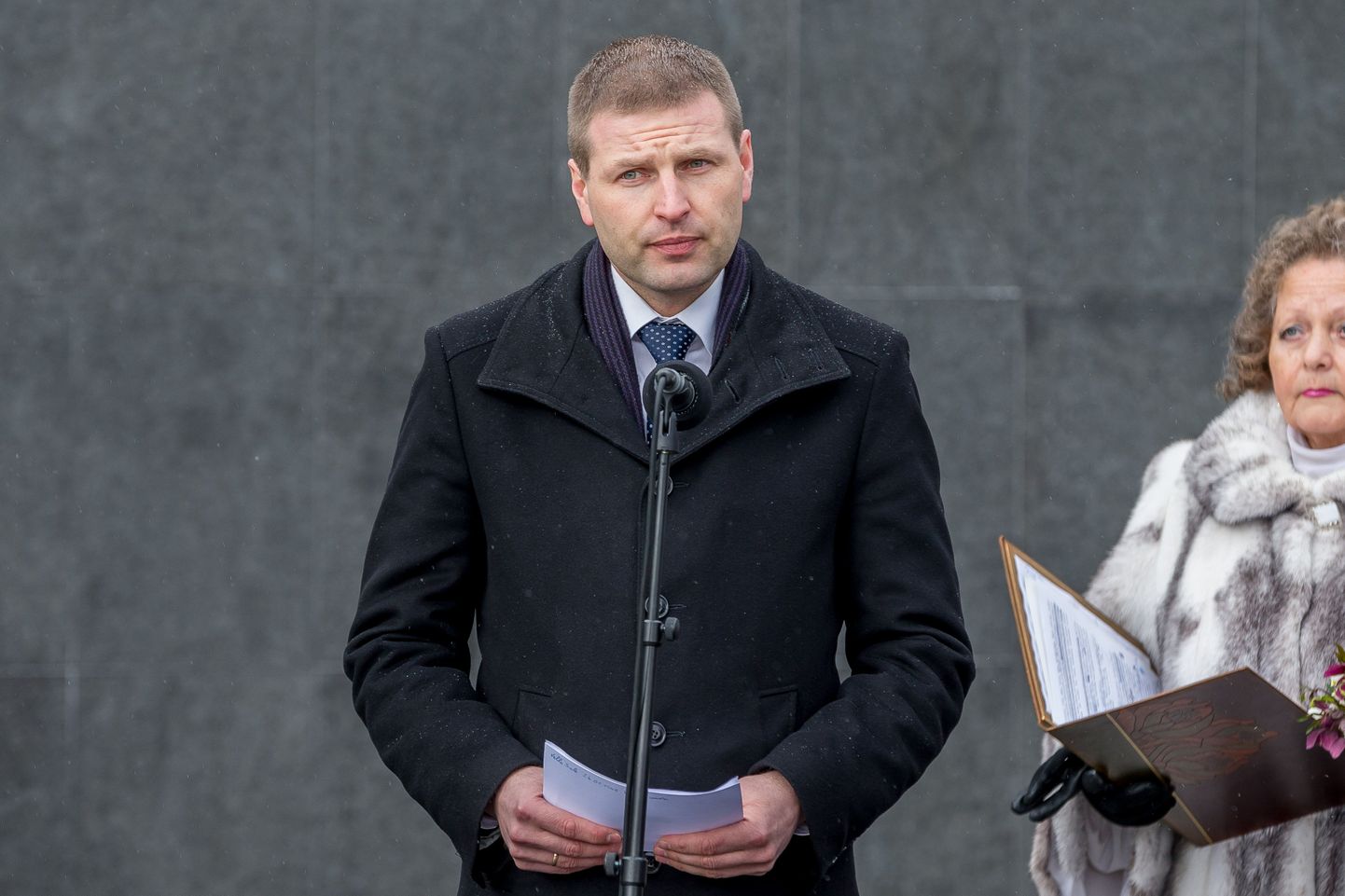
Refugees to arrive in Estonia will be handpicked by a team of five who when in doubt has the right to say «no», assures interior minister Hanno Pevkur (Reform).

Refugees to arrive in Estonia will be handpicked by a team of five who when in doubt has the right to say «no», assures interior minister Hanno Pevkur (Reform).
How – if at all – can we choose who comes to us?
With those relocated, we will be cooperating with UN refugee organisation i.e. they will show that here we have 50 people, for instance, assess them...
Who will assess them?
Our team.
Who is our team? Does it exist?
No, it is being compiled. There will be a Police and Border Guard person, some people from social ministry, in high likelihood someone from security police and if needed from interior ministry. Finns, for example, have such a team of seven; we will have four to five people who travel to the refugee camp where they are shown 50 people let’s say whom we will assess and maybe say «yes» to 30 and decline 20. Then, we will be presented 20 people until we fill up our 50.
Those that pass the assessment procedure will receive residence permit to enter Estonia. By that time, social ministry should have found them a place live in some local government i.e. they will not go to some refugee centre but straight to their new homeplace.
Will they have to stay here or may they choose some other place to dwell?
Sure they may move. But if any of them gets caught with something in Berlin, say, and says he has a residence permit in Estonia, he may then say he came to visit relatives. They cannot be totally locked up you see so if they get Estonian residence permit it is not excluded that one day they will end up in Germany for instance.
So we cannot nor must not guarantee that they remain here?
We cannot, but the agreement is that if it is found out in Germany that a person is dwelling there permanently while having an Estonian residence permit, then the person is under danger of being sent back to Syria say.
Will our team have to take care that the sifting is thorough enough so, among the needy, we will not get terrorists or fake refugees?
It makes sense to learn from the Finns. Voluntarily, they have been receiving 1,014 a year. They have a practice of picking the persons and the rest. There must be the readiness in case a person has nothing but a document issued by the Red Cross which may not show much. If the person has some identity document, it is well, but it’s another matter how to obtain adequate information regarding these persons from Syria or Eritrea. That is not easy necessarily. Then, the profile of the person may not come together on location, and well we do have some option of choice. What is clear is that we will prefer Christians and women.
So we will be able to choose?
The format is that we will be given an amount of people, but naturally we may choose. If there happens to be a man aged 40 and we have doubts regarding him, then we may cite security reasons and say he will not get residence permit in Estonia and he will remain there.
Is it settled where the refugees will be housed?
No, social ministry will have to work with that. There is not much clarity and understanding regarding that yet. Well we must talk and explain and offer financial incentives and support so the refugees will be received. On its part, the EU has promised that those relocated will come with €6,000 and those displaced with €10,000.
How can this flood of refugees be tamed, at all?
This is the place to start, I have always said that. Firstly, how to calm the civil war in Syria. This can only be done under UN auspices and like missions can only be initiated by the UN.
Secondly: in cooperation with Interpol, the criminal organisations involved in human trafficking must be captured on sea. These steps are unavoidable, without that nothing will succeed.
Unavoidably, how does one explain to people in Võhma or Osula, say, that here we have these people now so cope with it. Has the government done enough to explain things to its people?
Well it boils down to whether we want to help people or not. To endlessly have xenophobia is not too fruitful. Solidarity is an important keyword. We can’t expect to only take from the EU. We need to give something as well. And while for us the biggest problem today is Russia, then for Italy the biggest problem is refugees. It’s that simple. And Italy may ask why should we help you with Russia if you don’t want to help us with refugees. It’s really that simple.